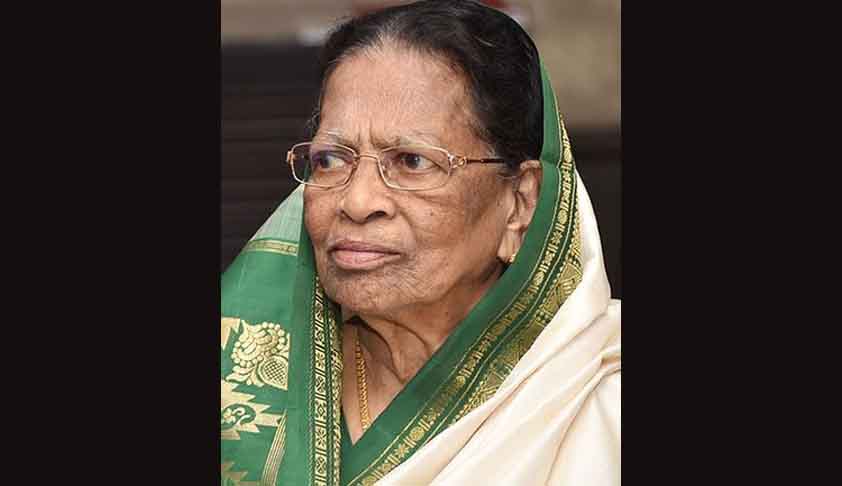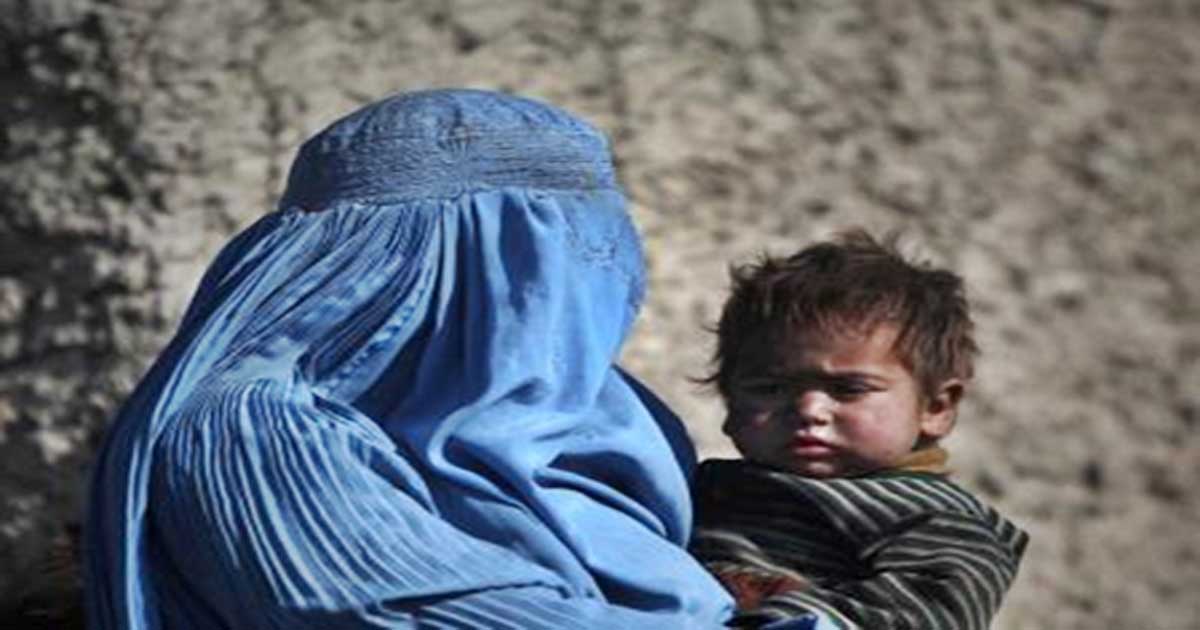National News
M. Fathima Beevi birthday: All you need to know about former Governor of Tamil Nadu

The pages of history have M. Fathima Beevi inked in the records, she is the first female to be appointed a Supreme Court Justice of India. Also, she was also the first Muslim woman in Higher Judiciary.
Fathima Beevi was born on April 30, 1927 at Pathanamthitta, in the erstwhile state of Travancore (presently in Kerala).
She took schooling from Catholicate High School in 1943 and later moved to Trivandrum to pursue higher education. She secured a B.Sc. degree from University College, Thiruvananthapuram after which she began her study in law from Government Law College, Thiruvananthapuram.
She was one of the only five female students in her class in the law school, a number that later became three. After completing her law degree in 1950, she appeared for the Bar Council of India examination and emerged as the first woman to top the exam. This was followed by her receiving the Bar Council gold medal, making it the first of her historic achievements.
Initially, she enrolled as an advocate and began her career in the lower judiciary in Kerala on 14th November, 1950. Progressing in her career, she made it to the notable position at the Supreme Court of India.
On 6-10-1989, Justice Fathima Beevi was appointed at the first female to be appointed a Supreme Court Justice of India. By being appointed at the Supreme Court, she paved the way for women to pursue careers in a male dominated judiciary.
She has a political career too. Justice Fathima Beevi went on to become the Governor of Tamil Nadu on 25-01-1997. Appointing her and former chief justice of Jammu and Kashmir High Court as the governor of Kerala, the then President of India, Shankar Dayal Sharma had said, “Their experience of and insights into the working of the Constitution and the laws comprise valuable assets.”
After resigning from her position as governor of Tamil Nadu, she got back to her ancestral home in now Kerala. Presently, she lives post retirement in the home state.
Business
World Bank flags rising poverty levels in Pakistan

New Delhi, Oct 8: The World Bank has expressed serious concern over Pakistan’s economy as the country has failed to reduce poverty despite massive loans injected by the IMF.
The current model of growth has failed to ameliorate the conditions of the poor, and the headcount ratio (HCR) has surged to its highest level of 25.3 per cent in the last eight years, which is a 7 per cent increase in HCR since 2023, the World Bank report states.
Instead of concentrating on rural development to reduce poverty, the Pakistan government has been focused more on increasing defence expenditure.
The World Bank report titled “Reclaiming Momentum Towards Prosperity: Pakistan’s Poverty, Equity and Resilience Assessment” released on September 23, mentions that even the country’s aspiring middle class (constituting 42.7 per cent of its population) is “struggling to achieve full economic security”.
Pakistan’s once-promising poverty reduction trajectory has come to a troubling halt, reversing years of hard-fought gains.
After dramatically reducing poverty from 64.3 per cent in 2001 to 21.9 per cent in 2018 — declining by 3 percentage points annually until 2015 before slowing to less than 1 percentage point per year — recent compounding shocks have pushed poverty rates back up to a projected 25.3 per cent by 2023-24, the report states.
The economic model that delivered early wins has reached its limits, with 14 per cent of the population in 2018 remaining vulnerable to falling back into poverty when faced with shocks.
Compounding crises — Covid-19, economic instability, devastating floods, and record-high inflation—have further exposed systemic weaknesses, leaving many in low-productivity activities and unable to cope with these challenges, the report points out.
Bold policy reforms are now essential to address structural imbalances, prevent sliding back into poverty during shocks, and tackle the persistent challenges in remote areas. In this context, this Poverty, Equity, and Resilience Assessment , the first since the early 2000s, looks at how poverty has evolved in Pakistan by combining traditional and non-traditional data, offering detailed analysis and strategic direction on the country’s efforts and challenges to reduce poverty and promote equity.
This comprehensive assessment aims to provide a roadmap for policymakers and stakeholders to address poverty and equity challenges in Pakistan effectively, the report added.
Crime
CBI arrests two CGST officers in Mumbai for accepting Rs 25,000 bribe

Mumbai, Oct 8: The Central Bureau of Investigation (CBI) on Wednesday said it has arrested a Superintendent and an Inspector of the Central Goods and Services Tax (CGST) in Mumbai, for allegedly demanding and accepting a bribe of Rs 25,000 from a businessman.
According to a CBI statement, the arrested officials have been identified as Superintendent Vikram and Inspector Lav Kumar Chittoria, both posted in the CGST Santacruz Division.
The case was registered on Tuesday following a complaint from a textile trader who had applied online for GST registration of his firm on September 24, the statement said.
The complainant alleged that during a field inspection on October 3, Chittoria demanded Rs 25,000 as illegal gratification for himself and his superior officer.
The officers allegedly warned that the GST registration certificate would not be issued unless the bribe was paid.
Acting on the complaint, the CBI laid a trap and caught both the accused red-handed while accepting the bribe amount inside the CGST West Mumbai Office on Tuesday.
The bribe money was recovered from their possession. Following the arrests, searches were carried out at the offices and residences of both officials, during which several incriminating documents were also seized.
A CBI spokesperson said that both officers were taken into custody for interrogation and will be produced before a competent court in Mumbai later in the day.
“Further investigation is underway to determine whether other officials were involved in the bribery racket and to trace possible links with similar cases,” the official added.
The agency reiterated its zero-tolerance policy towards corruption in government departments and urged citizens to report any instance of demand for bribes through its dedicated helpline and online portal.
Just a few days ago, in its crackdown on bribery in government offices, the CBI arrested two senior government officials of the Ministry of Defence and a railway hospital, in two separate cases of bribery.
Business
Committed to boosting Mumbai’s infrastructure, ease of living: PM Modi

Mumbai, Oct 8: Prime Minister Narendra Modi on Wednesday reaffirmed his government’s commitment to enhancing Mumbai’s infrastructure and the ‘Ease of Living’ as he is set to inaugurate Phase-1 of the Navi Mumbai International Airport (NMIA) and the Mumbai Metro Line-3.
In a post on X, PM Modi said, “On the way to Navi Mumbai to take part in the programme marking the inauguration of Phase-1 of the Navi Mumbai International Airport. With this, the Mumbai Metropolitan Region will get its second major international airport, thus boosting commerce and connectivity.”
“The final phase of the Mumbai Metro Line-3 will also be inaugurated. We are committed to enhancing Mumbai’s infrastructure and boosting ‘Ease of Living’ for the people of this dynamic city,” he added.
Phase-1 of the Navi Mumbai International Airport, developed at an estimated cost of Rs 19,650 crore, will be inaugurated by the Prime Minister in line with his vision of transforming India into a global aviation hub.
The Navi Mumbai International Airport is India’s largest Greenfield airport project, developed under a Public-Private Partnership (PPP) model. As the second international airport for the Mumbai Metropolitan Region, it will work in coordination with the Chhatrapati Shivaji Maharaj International Airport (CSMIA) to reduce congestion and position Mumbai among global cities with multi-airport systems.
Spread across 1,160 hectares, NMIA is designed to be one of the most efficient airports in the world, capable of handling up to 90 million passengers per annum and 3.25 million metric tonnes of cargo.
Among its standout features is an Automated People Mover (APM) system that will connect all four passenger terminals to facilitate smooth inter-terminal transfers. A landside APM will also link the city-side infrastructure, ensuring convenience for passengers and staff.
Committed to sustainability, the airport will include storage for Sustainable Aviation Fuel (SAF), solar power generation of nearly 47 MW, and electric bus services for city-wide connectivity. NMIA will also become the country’s first airport to be connected by a Water Taxi service.
In addition to the airport, PM Modi will inaugurate Phase 2B of the Mumbai Metro Line-3, which stretches from Acharya Atre Chowk to Cuffe Parade and has been constructed at an estimated cost of Rs 12,200 crore.
With this launch, the Prime Minister will dedicate the entire Mumbai Metro Line-3 (Aqua Line) to the nation. Built at a total cost exceeding Rs 37,270 crore, this milestone marks a major leap forward in the city’s urban transport infrastructure.
Mumbai Metro Line-3, the city’s first fully underground metro line, is set to redefine commuting in the Mumbai Metropolitan Region by offering faster, more efficient, and eco-friendly transport options for millions of daily commuters.
-

 Crime3 years ago
Crime3 years agoClass 10 student jumps to death in Jaipur
-

 Maharashtra1 year ago
Maharashtra1 year agoMumbai Local Train Update: Central Railway’s New Timetable Comes Into Effect; Check Full List Of Revised Timings & Stations
-

 Maharashtra12 months ago
Maharashtra12 months agoMumbai To Go Toll-Free Tonight! Maharashtra Govt Announces Complete Toll Waiver For Light Motor Vehicles At All 5 Entry Points Of City
-

 Maharashtra1 year ago
Maharashtra1 year agoFalse photo of Imtiaz Jaleel’s rally, exposing the fooling conspiracy
-

 National News12 months ago
National News12 months agoMinistry of Railways rolls out Special Drive 4.0 with focus on digitisation, cleanliness, inclusiveness and grievance redressal
-

 Maharashtra11 months ago
Maharashtra11 months agoMaharashtra Elections 2024: Mumbai Metro & BEST Services Extended Till Midnight On Voting Day
-

 National News1 year ago
National News1 year agoJ&K: 4 Jawans Killed, 28 Injured After Bus Carrying BSF Personnel For Poll Duty Falls Into Gorge In Budgam; Terrifying Visuals Surface
-

 Crime12 months ago
Crime12 months agoBaba Siddique Murder: Mumbai Police Unable To Get Lawrence Bishnoi Custody Due To Home Ministry Order, Says Report












